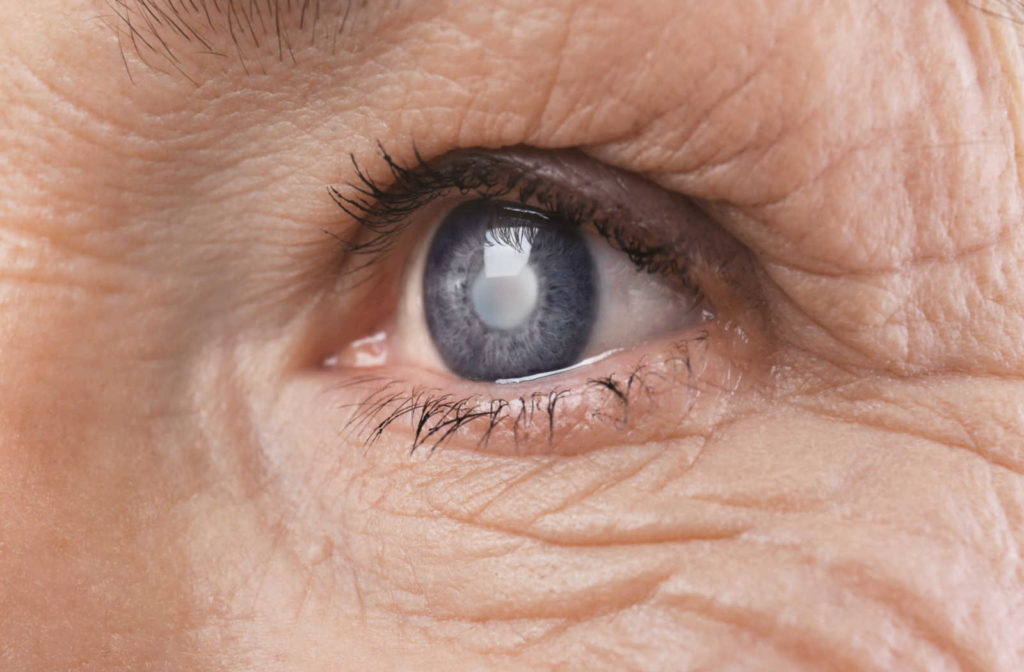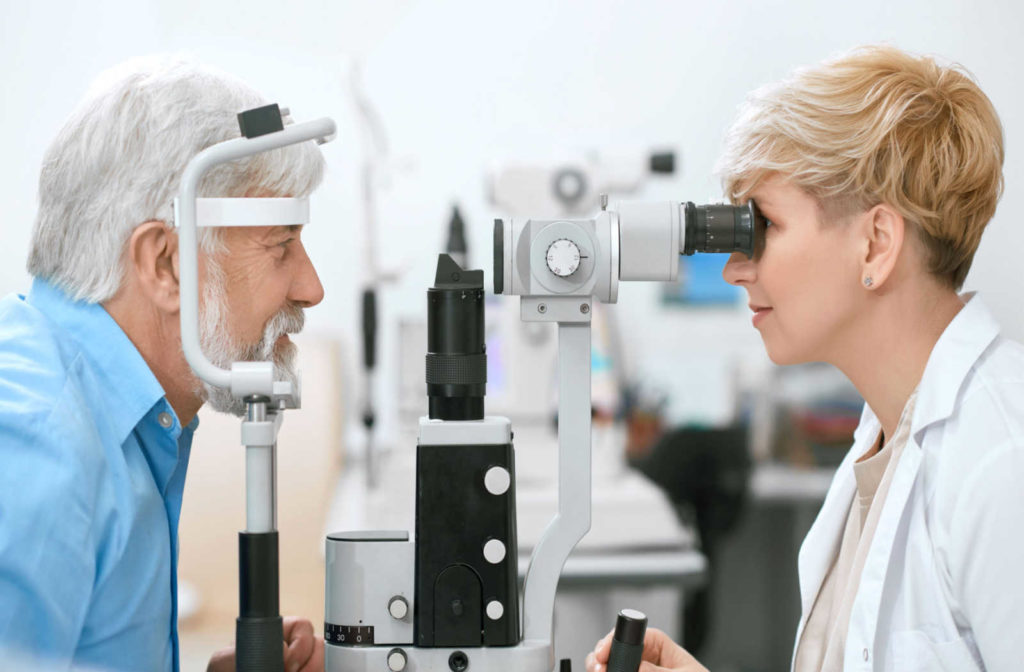Consistency is vital when it comes to eye care. A consistent eye exam schedule can help your optometrist stay up-to-date with your vision and determine if any diseases are developing.
Eye diseases can sometimes develop with little to no symptoms, and proper vision care is essential.
Let’s look at what diseases can be detected during your eye exam, including how frequently you should schedule an exam.
Scheduling An Eye Exam
Your eyes are fragile and delicate, requiring specialized care from eye care professionals. Consistent eye exams should become an essential part of your schedule. Your optometrist can help you learn how your eyes work and determine your unique prescription.
For low-risk adults 18–64 and senior adults age 65+, we recommend visiting us for an eye exam annually. High-risk adults may need to see their optometrist for more frequent exams. You may be considered high-risk if you:
- Have an eye disease or a family history of eye disease
- Have a high or progressive refractive error
- Have had eye surgery or an eye injury
- Work a visually demanding job
Changes can occur in your vision as a natural part of the aging process. Regular eye exams allow your optometrist to monitor these changes, update your prescription, or prepare a treatment plan if needed.
Children’s Eye Exams
Good vision care habits are developed from a young age. Early eye exams can help your children’s visual development and allow your optometrist to assess your child’s:
The recommended frequency of eye exams for your children are:
- Having their first eye exam at 1 years old
- At least 1 exam between 3 and 5 years of age
- An eye exam every 1–2 years for school-age children
A comprehensive eye examination can also help your optometrist detect developing eye diseases.

Catching Eye Disease Early
Eye diseases can target the sensitive areas of your eyes and cause damage that can potentially lead to vision loss or blindness.
Eye exams are also helpful in the detection of other health conditions such as diabetes, heart conditions, and lupus.
Let’s explore some common eye diseases that your optometrist can help diagnose and manage.
Glaucoma
Glaucoma is a group of eye diseases that damage the optic nerve. This damage can lead to vision loss that cannot be recovered.
Glaucoma can develop when too much fluid pressure builds up inside your eye. This increase in eye pressure is referred to as intraocular pressure. This pressure can damage the optic nerve and result in a disruption of image transmission to your brain.
Age-Related Macular Degeneration (AMD)
Age-related macular degeneration (AMD) is an eye disease that blurs your central vision. AMD occurs when aging causes damage to your macula, which is responsible for sharp, straight-ahead vision.
There are 2 main types of AMD, dry AMD and wet AMD.
Cataracts
A cataract occurs when the usually clear lens of your eye becomes clouded. Cataracts eventually cause your vision to become cloudy and obscured in the affected eye. As a result, cataracts can make it difficult to perform daily activities such as reading or driving a vehicle.
As the disease develops, prescription glasses can help you overcome cataracts, but as time progresses, your symptoms may worsen, and surgery is required.
With consistent eye exams, quick diagnosis and management, your optometrist can assist with slowing, stopping, or preventing vision loss.
Diagnosing eye disease at its earliest stage is essential to preserve your vision.
Maintaining Consistency
Consistent eye exams can help your optometrist determine more than just your prescription. Eye exams are a way for your eye care professional to search for irregularities in your vision and determine if eye diseases or other medical conditions are forming. Book an appointment with your optometrist at Arena Eyeworks to schedule an eye exam today to help preserve your vision.



